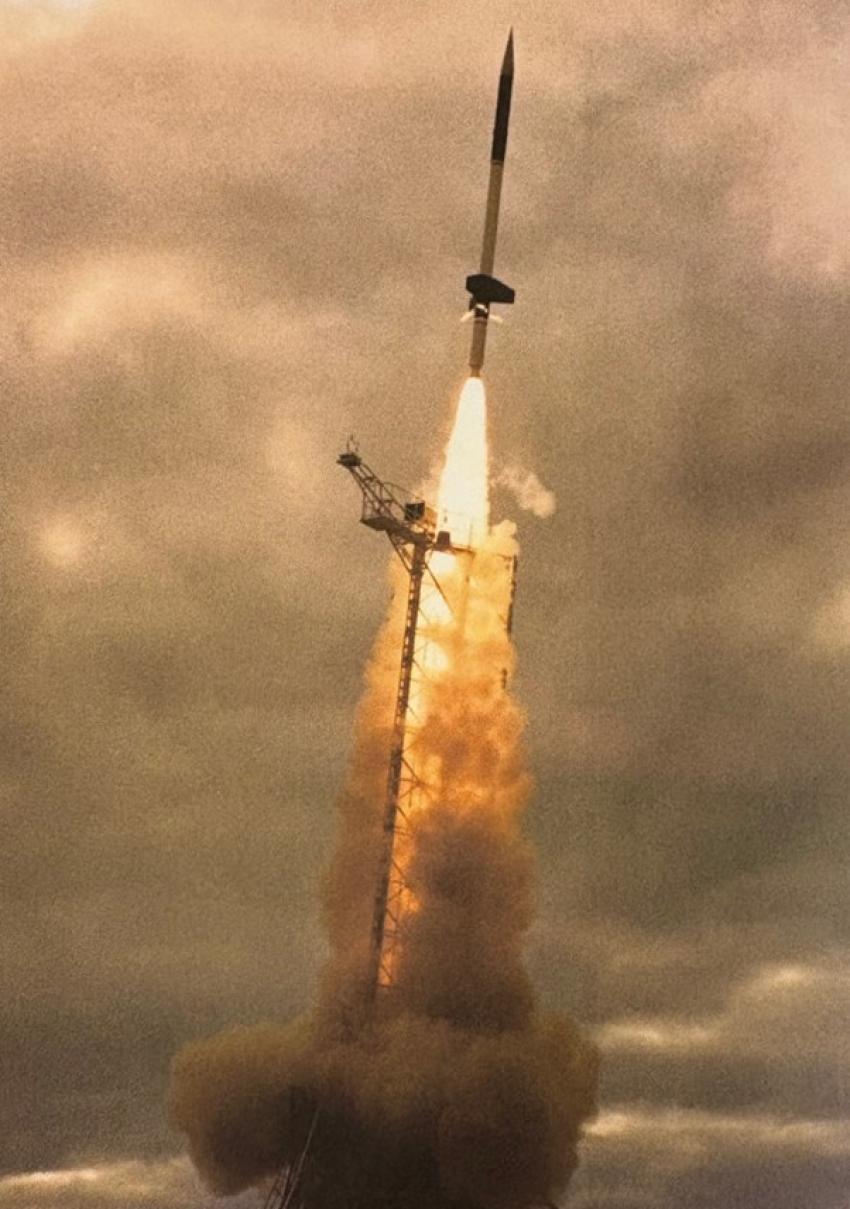Book a Fellow February In Person or Online SDM ticket
Book a Non Fellows February In Person or Online SDM ticket
In 1957, well before the launch of Sputnik, the UK launched a research vehicle called Skylark which offered an opportunity for new science investigations from a space platform and a remarkably productive training ground for future space scientists.
When Skylark first became available the X-radiation from the Sun had only just been discovered and the atomic physics of the Sun’s hot outer layers and sunspots could then be studied for the first time. The links between Solar activity and the Earth’s atmosphere were starting to be explored and in Astronomy, X-Ray emission from unknown celestial objects with no obvious optical counterparts would soon be detected. These proved to be our first observations of black holes. Skylark payloads contributed immensely to these developments in Astronomy and Geophysics, and often formed the pathway to the instruments and techniques now used on satellite observatories.
More than 400 Skylarks were launched over the following 47 years. This meeting sets out to review the history of the Skylark sounding rocket, how it was used and the science it enabled.
Programme:
Morning Session: Chair Mike Cruise
10.30-11.00 Doug Millard (Science Museum London): Space Science in the 1950s: What were the challenges and options in addressing science questions just after the war?
11.00-11.30 Robin Brand (New Forest Electronics): The Skylark Rocket: How did the Skylark rocket get developed and how was it used?
11.30-12.00 David Rees (The Paradigm Factor Ltd): The contribution made to Geophysics and Solar Terrestrial Physics by Skylark experiments.
12.00-12.30 Ken Pounds (University of Leicester): The contribution made to Astronomy by Skylark experiments
12.30-13.30 Lunch (Not provided but available locally around Piccadilly)
Afternoon Session: Chair John Zarnecki
13.30 -13.45 Mike Cruise ( University of Birmingham): The Australian environment for Skylark
13.45-14.00 Ian Tuohy: Australian University Involvement in Skylark
14.00 -15.00 Short contributions from Skylark users (up to 10 mins each, plus a few slides?)
15.00-15.30 John Zarnecki (Open University): Summary and Closing remarks
Note: We invite previous users of Skylark to attend and make a short presentation in the session from 14.00 to 15.00. These contributions should be less than 10 minutes and a few PowerPoint slides. If attendees wish to display small Skylark artefacts (not containing pyrotechnics, please), that would be interesting. Those wishing to make a short contribution should contact the organisers before January 15th, by email to both organisers.
Organisers: Prof Mike Cruise (cruiseam1@gmail.com) and Prof John Zarnecki (John.Zarnecki@open.ac.uk.)
Book a Fellow February In Person or Online SDM ticket
Book a Non Fellows February In Person or Online SDM ticket


